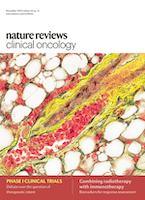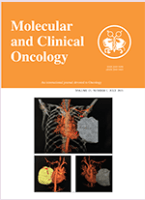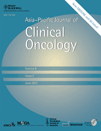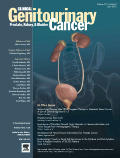
Cancer Management and Research
Scope & Guideline
Shaping the future of cancer management and treatment.
Introduction
Aims and Scopes
- Clinical Outcomes and Treatment Strategies:
The journal emphasizes studies that analyze clinical outcomes of various cancer treatments, including chemotherapy, immunotherapy, and surgical interventions, offering insights into their effectiveness and safety. - Biomarkers and Prognostic Indicators:
Research on biomarkers for cancer diagnosis and prognosis is a core area, with studies identifying novel biomarkers and their roles in predicting treatment responses and patient outcomes. - Precision Medicine and Personalized Therapies:
The journal showcases advancements in precision medicine, including studies on targeted therapies, genetic profiling of tumors, and individualized treatment plans based on patient-specific factors. - Machine Learning and Artificial Intelligence in Oncology:
Innovative applications of machine learning and AI in cancer diagnostics, prognosis, and treatment prediction are featured, highlighting the integration of technology in enhancing cancer care. - Patient Quality of Life and Psychosocial Aspects:
Research that addresses the quality of life of cancer patients, including the psychosocial impacts of cancer treatment and survivorship, is a significant focus area. - Emerging Treatments and Clinical Trials:
The journal publishes findings from clinical trials and assessments of emerging therapies, including novel drug combinations and new therapeutic modalities.
Trending and Emerging
- Immunotherapy and Combination Therapies:
There is a growing emphasis on immunotherapy, particularly studies exploring combination therapies that enhance immune response and improve patient outcomes in various cancer types. - Liquid Biopsy and Non-Invasive Diagnostics:
Research on liquid biopsies as a non-invasive diagnostic tool is trending, with studies investigating their potential for early detection and monitoring of cancer progression. - Artificial Intelligence and Big Data Analytics:
The application of AI and big data analytics in oncology is increasingly prominent, focusing on improving diagnostic accuracy, treatment predictions, and personalized care strategies. - Health Disparities and Socioeconomic Factors:
Emerging research is highlighting the impact of socioeconomic factors and health disparities on cancer outcomes, driving a focus on equitable healthcare access and tailored interventions. - Nutritional Status and Cancer Outcomes:
Studies examining the role of nutritional status and dietary patterns in cancer prevention and management are gaining traction, reflecting a holistic approach to cancer care. - Targeted Therapies Based on Genetic Profiling:
There is a notable increase in research focusing on targeted therapies that are aligned with specific genetic mutations, enhancing treatment efficacy and patient outcomes.
Declining or Waning
- Traditional Chemotherapy Approaches:
With the rise of targeted therapies and immunotherapies, studies focusing solely on traditional chemotherapy regimens are appearing less frequently, indicating a shift towards more innovative treatment strategies. - Basic Science Studies without Clinical Relevance:
Research that emphasizes basic science findings without clear clinical implications or applications is declining, as the journal prioritizes studies with direct relevance to patient care and management. - Generalized Cancer Management Strategies:
The focus on broad, generalized cancer management strategies is waning in favor of more specific, targeted approaches that consider the unique molecular and genetic profiles of individual tumors.
Similar Journals

World Journal of Clinical Oncology
Advancing the Future of Oncology ResearchWorld Journal of Clinical Oncology, published by BAISHIDENG PUBLISHING GROUP INC, stands as a vital resource in the realm of oncology, providing a dedicated platform for the dissemination of cutting-edge research and clinical advancements. With an ISSN of 2218-4333, this journal facilitates a comprehensive exploration of modern oncology challenges and breakthroughs, targeting researchers, healthcare professionals, and students alike. Although it operates under the traditional subscription model, the impactful nature of its content is reflected in its notable ranking of 60 out of 334 in the category of Medicine _ Oncology, placing it in the 82nd percentile among peer publications. Covering significant topics in clinical oncology from 2014 to 2018, the journal has been instrumental in addressing evolving oncology practices and patient care innovations. By publishing high-quality studies, it remains an essential tool for advancing knowledge and fostering collaboration within the global oncology community.

Nature Reviews Clinical Oncology
Pioneering Insights for Tomorrow's TreatmentsNature Reviews Clinical Oncology is a premier journal dedicated to the comprehensive exploration and critical evaluation of current advancements in the field of clinical oncology. Published by the esteemed NATURE PORTFOLIO in the United Kingdom, this influential journal boasts an impressive impact factor that reflects its significant role in shaping oncology research. As a Q1 ranked journal in Scopus, it occupies a notable position within the top tier of oncology publications, placing it in the 99th percentile among its peers. With a history of convergence from 2009 to 2024, it presents high-quality content through an open-access model, ensuring accessibility to vital research findings. Researchers, professionals, and students alike will find Nature Reviews Clinical Oncology an invaluable resource for staying abreast of the latest trends, biologic insights, and therapeutic innovations that drive the future of cancer treatment.

Molecular and Clinical Oncology
Empowering breakthroughs in cancer biology and treatment.Molecular and Clinical Oncology is a dynamic journal published by SPANDIDOS PUBL LTD, aimed at advancing the understanding of cancer biology and treatment modalities. With an ISSN of 2049-9450 and an E-ISSN of 2049-9469, the journal serves as a critical platform for researchers and clinicians dedicated to uncovering novel insights in molecular oncology and enhancing clinical practices. As a testament to its growing influence, the journal has achieved a Q3 ranking in Oncology and a Q4 ranking in Cancer Research for the year 2023, reflecting its commitment to publishing high-quality research. Although currently not an Open Access publication, the journal offers crucial subscription options, ensuring comprehensive access to groundbreaking studies and innovations in the field. With converged years spanning 2018 to 2024, the journal is set to continue enriching the academic community with its valuable contributions, ultimately empowering researchers, professionals, and students engaged in the fight against cancer.

Asia-Pacific Journal of Clinical Oncology
Exploring breakthroughs in clinical oncology for better patient outcomes.Asia-Pacific Journal of Clinical Oncology is an essential publication within the field of medical oncology, dedicated to advancing the understanding and treatment of cancer through rigorous research and innovative clinical practices. Published by WILEY, this journal has established itself as a significant resource for researchers, healthcare professionals, and students interested in the latest findings across the Asia-Pacific region and beyond. With a respectable impact factor and categorized within the Q2 and Q3 quartiles of Medicine (miscellaneous) and Oncology respectively, the journal aims to disseminate knowledge on diverse aspects of clinical oncology, promoting the improvement of patient care and treatment outcomes. The Asia-Pacific Journal of Clinical Oncology, operating from the United Kingdom, invites contributions that highlight significant findings and advancements in oncology, making it a crucial platform for collaboration and knowledge sharing in this vital field of medicine.

Oncology in Clinical Practice
Elevating Patient Outcomes Through Innovative ResearchOncology in Clinical Practice is a vital resource in the field of oncology, published by VIA MEDICA in Poland. This peer-reviewed journal, with ISSN 2450-1654 and E-ISSN 2450-6478, aims to bridge the gap between clinical practice and cancer research, providing a platform for the dissemination of original research, reviews, and case studies. Since its inception in 2019, the journal has featured significant contributions to the understanding of cancer treatment and patient care, although it currently holds a Q4 ranking in Oncology with a Scopus rank of #313/404 and a 22nd percentile in the Medicine _ Oncology category. Though it is not an open-access journal, its content is invaluable for oncologists, researchers, and students, offering critical insights and advancements in clinical approaches to cancer management. With a commitment to enhancing patient outcomes through clinical evidence, Oncology in Clinical Practice serves as an essential reference for those dedicated to the fight against cancer.

Clinical Genitourinary Cancer
Leading the charge in urological research excellence.Clinical Genitourinary Cancer, published by CIG MEDIA GROUP, LP, is a leading journal in the fields of Oncology and Urology, with an impressive impact reflected in its quartile rankings (Q2 in Oncology and Q1 in Urology for 2023) and strong Scopus rankings (22nd in Urology and 162nd in Oncology). The journal aims to innovate and inspire new research in genitourinary malignancies, providing a platform for the latest findings in diagnosis, treatment, and patient management. With its commitment to high-quality publications since its establishment in 2005, Clinical Genitourinary Cancer serves a crucial role in advancing the understanding of these complex conditions and enhancing clinical practices. Researchers, professionals, and students in the medical community are encouraged to engage with this essential resource, which facilitates open access to pioneering studies that drive the field forward.

INDIAN JOURNAL OF CANCER
Championing Cancer Research in the Heart of IndiaINDIAN JOURNAL OF CANCER, published by WOLTERS KLUWER MEDKNOW PUBLICATIONS, stands as a pivotal resource in the field of oncology, providing dedicated insight into cancer research and its clinical applications since its inception in 1965. With an ISSN of 0019-509X and an E-ISSN of 1998-4774, this esteemed journal facilitates the dissemination of knowledge related to cancer prevention, diagnosis, and treatment strategies within the Indian context and beyond. Although classified within the Q3 quartile of oncology journals and ranked #292 out of 404 in its category in the Scopus database, the INDIAN JOURNAL OF CANCER continues to play a vital role in advancing the dialogue around cancer management. This journal is particularly significant for researchers, professionals, and students intent on contributing to the evolving landscape of oncology, offering a platform for sharing innovative findings and fostering collaboration among the academic community. Located in Mumbai, India, the journal's commitment to impactful research is reflected in its ongoing efforts to bridge gaps in cancer knowledge and address the unique challenges faced within the region and globally.

Therapeutic Advances in Medical Oncology
Advancing cancer care through innovative research.Therapeutic Advances in Medical Oncology, an esteemed journal published by SAGE Publications Ltd, serves as a critical platform for disseminating high-quality research pertinent to the field of oncology. Indexed under the ISSN 1758-8340 and E-ISSN 1758-8359, this Open Access journal has made significant strides since its inception in 2009, attaining a commendable rank of #78 out of 404 in the Medicine - Oncology category of Scopus, placing it in the top 20th percentile of journals. With its category quartile of Q1 established in 2023, it underscores the journal’s commitment to advancing therapeutic approaches in oncology, making it an invaluable resource for researchers, clinicians, and students alike. Offering unrestricted access to pioneering studies since 2017, it aligns with the global movement towards open science, fostering collaboration and innovation among professionals striving to improve cancer treatment outcomes. By bridging the gap between research and clinical practice, Therapeutic Advances in Medical Oncology plays a vital role in shaping the future of cancer therapy.

Oncology Reviews
Exploring Innovations in Cancer Treatment and ResearchOncology Reviews, founded in 2007 and published by FRONTIERS MEDIA SA, is a leading open-access journal dedicated to advancing knowledge in the field of oncology and cancer research. With an Impact Factor reflecting its robust engagement in scholarly discourse, this journal maintains a prestigious standing, earning a Q2 ranking in Oncology and a Q3 ranking in Cancer Research as of 2023. Notably, it is indexed in Scopus, where it ranks #118 in Oncology and #98 in Cancer Research, highlighting its global reach and significance. The journal's open-access policy, in effect since 2012, ensures that high-quality research is accessible to all, fostering collaboration and wellness improvements worldwide. This commitment to accessibility and dissemination of pivotal research makes Oncology Reviews an essential resource for researchers, healthcare professionals, and students eager to contribute to and stay abreast of the latest innovations in cancer treatment and research.

ONCOLOGY-NEW YORK
Delivering the Latest Breakthroughs in Cancer Science.ONCOLOGY-NEW YORK is a prominent journal dedicated to the field of oncology, published by UBM MEDICA. Since its inception in 1987, the journal has served as a pivotal platform for disseminating groundbreaking research and advancements in cancer treatment, research, and education. With an ISSN of 0890-9091 and an E-ISSN of 2767-7389, it stands as an accessible resource for professionals, researchers, and students alike. The journal currently holds impressive rankings, categorized within Q3 in Oncology and Q4 in Cancer Research for 2023, reflecting its commitment to high-quality research output and contributions to the field. Despite its challenges in Scopus rankings, positioned at #283/404 in Medicine: Oncology and #188/230 in Biochemistry, Genetics, and Molecular Biology: Cancer Research, ONCOLOGY-NEW YORK continues to primarily focus on innovative cancer therapies and emerging clinical research. The journal's ongoing dedication to enhancing knowledge and understanding in oncology makes it a vital resource for all stakeholders invested in combating cancer.